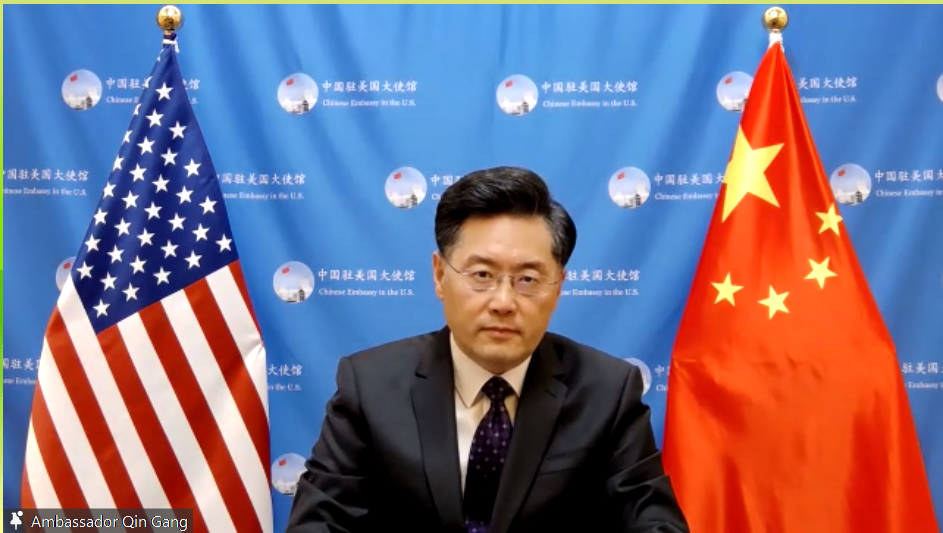Ambassador urges US to respect one-China principle


China's ambassador to the US Qin Gang urged the Biden administration to respect the one-China principle?in deeds rather than just words on Thursday during his first interview with US media since taking office in July.
"We have taken?notice?of President (Joe) Biden's words that?the United States?does not support 'Taiwan independence' and the United States wants to see peace and stability across the Taiwan Straits, the United States will adhere to?its one-China policy, but so far, we haven't seen many actions to honor his words," Qin said in his interview with National Public Radio's Morning Edition.
Tension across the Taiwan Straits has been escalating because the Taiwan authorities have been "trying to seek independence agenda by borrowing support, the encouragement of the?US and the US?playing the Taiwan card to contain China", he said.
"The one-China principle?is the most?important foundation of China-US?relations?in the?past decades," but it is "being hollowed out by the United States".
The ambassador said the US has been walking away from its commitment bit?by bit by increasing official links and upgrading?them,?selling more advanced weaponry?to?Taiwan?and sending soldiers there.
He noted the Taiwan question is the?"biggest?tinderbox" between China?and the United States, emphasizing "we will do our utmost?in the greatest sincerity?to achieve a peaceful reunification, which we believe is?in the best interests?of people?across the Taiwan Straits, in the best interests?of China-US relations, in the best interests?of peace and stability in the region.
"If the Taiwan authority,?emboldened?by?the United States, keeps?going down the road for independence, it would most likely involve China?and the United States, the two big countries,?in a?military conflict. China?does not want to have conflict or confrontation with the United States. The United States does not want war with?China. So, no war, no conflict is the biggest consensus between China and?the United States. So, let's work together to contain the separatist?forces of Taiwan, to give peace a chance. Let peace prevail."
"The relationship between China?and the United States?is?the most important relationship.?We must work well and not?mess it up. We wish the United States?well. But the question is:?can the United States?respect and accept China's rise as a positive force to maintain or to facilitate world?peace and prosperity??Can?the?United States?believe China's rise will?benefit other?countries, benefit people in the United States?and provide?more business opportunities and more jobs?" Qin queried.
When asked whether he anticipated a period of greater difficulty between the two countries, Qin said both countries are at a very challenging time and he is here to "reach out to people of all communities in the United States,?tell them China's intention?and policy — of course?a good intention?and?reasonable policy vis-a-vis?China-US relationship — and?(be) open-minded for all sorts of opinions."
"In China's belief, we hope a?good relationship will be established based on the principles of?mutual respect, peaceful coexistence, and win-win cooperation. As I said, it's not easy, and it?will take time. There will be?a lot of difficulties. My role is to make this?road have?less pain, less difficulties?and?more certainty."































